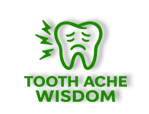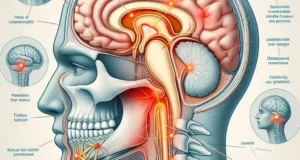A throbbing wisdom tooth can turn your nights into misery. The pain often feels worse when you lie down, disturbing your sleep and focus. Fortunately, with a few smart bedtime habits, you can manage tooth ache wisdom and sleep comfortably—even during flare-ups.

1. Keep Your Head Elevated
Sleep with your head slightly raised using two pillows. It prevents blood from pooling around the sore area, helping reduce swelling and easing tooth ache wisdom naturally.
2. Use a Cold Compress Before Bed
A cold pack on the cheek numbs the nerves and reduces inflammation. Apply for 10 minutes before sleeping for quick wisdom tooth ache relief.
3. Rinse With Warm Saltwater
Rinsing with saltwater kills bacteria and soothes the gums. Do this 30 minutes before bed to control infection and nighttime tooth ache wisdom pain.
4. Avoid Sleeping on the Painful Side
Putting pressure on the aching side worsens the pain. Lie on the opposite side or on your back to avoid increasing wisdom tooth discomfort.
5. Use Clove Oil or Numbing Gel
Apply a drop of clove oil or a dentist-recommended gel to numb the gums. These natural anesthetics calm tooth ache wisdom quickly.
6. Stay Hydrated With Warm Water
Drink warm water through the evening to prevent dryness that can intensify sensitivity in your wisdom tooth area.
7. Skip Caffeine and Sugar Before Bed
Coffee, chocolate, and soda can irritate gums and heighten sensitivity. Avoid them before bed to reduce tooth ache wisdom irritation.
8. Try a Natural Anti-Inflammatory
Turmeric mixed with warm milk or honey fights swelling naturally, offering gentle relief from wisdom tooth pain at night.
9. Keep Up Gentle Oral Hygiene
Brush gently and rinse properly to remove food near your wisdom tooth. Bacterial buildup is a key cause of tooth ache wisdom at night.
10. Massage the Jaw Area
Lightly massage the cheek and jaw in circular motions to relax muscles and reduce pressure around your wisdom tooth.
11. Sleep in a Cool, Calm Environment
A slightly cool, dark room helps your body regulate temperature and lowers inflammation caused by tooth ache wisdom.
12. Take a Mild Pain Reliever
If the pain is strong, use a dentist-approved mild painkiller like ibuprofen. It reduces swelling and helps you rest through wisdom tooth pain safely.
13. Avoid Excess Talking or Chewing
Too much jaw movement worsens pressure around the sore tooth. Limit talking before bed to minimize tooth ache wisdom discomfort.
14. Consult a Dentist if Pain Persists
If pain lasts beyond three days or radiates to your ear, seek professional help. Ongoing tooth ache wisdom can signal infection or impaction.

Objection:
“Can’t I just wait for the pain to disappear naturally?”
Answer:
Ignoring tooth ache wisdom often leads to bigger problems—like infection or nerve irritation. Timely care not only saves you from sleepless nights but also prevents serious dental complications later.



